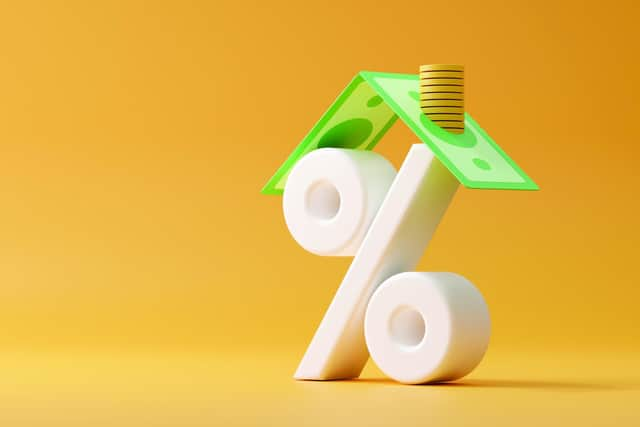How to prepare for rising mortgage rates - including overpaying and looking in advance
and live on Freeview channel 276
With interest rates expected to rise again this month - for the eleventh consecutive time in just over a year - millions of mortgage customers are sure to feel the blow as borrowing becomes more expensive. But according to Which?, there are ways customers can prepare for, and even combat, rising mortgage rates.
Reena Sewraz, the Which? Money Expert, said: “Millions of mortgage borrowers will be worried about the upcoming interest rate decision and the impact this will have on their finances, particularly as many are already feeling the pinch of higher prices on food and energy.
Advertisement
Hide AdAdvertisement
Hide Ad“There are steps you can take to protect yourself from rising rates. Well before your mortgage deal expires, hunt for a new rate, as most lenders will let you secure it for up to six months in advance.
“If you can, overpay your mortgage to build up your equity to unlock cheaper deals when you come to remortgage, and make sure your credit report is in good shape to secure the best deals on the market.”
6 ways to prepare for rising mortgages
Assess the impact on your own finances
Those who are on a tracker mortgage will see the impact on their monthly repayments immediately if the interest rate rises. If you are close to the end of a fixed-term deal, you will most likely be met with double or triple your current costs when they come to remortgage, says Which?, as they are likely to be higher than when you first took out your mortgage.
“Think about how much you can afford to pay each month and whether there’s likely to be any change to your income in the short-term,” said Which?. “If you’re struggling or think you’ll struggle to pay your mortgage, seek advice as soon as possible. Speak to your lender and tell them about your issues – there are support options out there.”
Advertisement
Hide AdAdvertisement
Hide Ad

Work out which mortgage suits you best
If you are in the process of buying a property, or if you’re due to remortgage, you will need to consider what type of mortgage is best for your circumstances. A majority of UK homeowners choose fixed-term mortgage deals, as repayments will remain despite interest rate hikes for the duration of the term - with the most popular ones lasting two, five or 10 years.
Tracker mortgages come with more risk, as the base rate could potentially continue to rise throughout the term, but could also mean lower costs should interest rates fall. Tracker deals do however often come with a so-called “collar”, which specifies the minimum amount you have to pay, regardless of interest rates.


Find a new deal before your current mortgage expires
“Be proactive in hunting for a new deal, particularly if you’re one of the 1.4 million homeowners whose fixed-term mortgage is coming to an end this year,” says Which? experts.
When a fixed or tracker mortgage comes to an end, you will usually be moved onto your lender’s standard variable rate (SVR) automatically, where the interest rates will likely be higher. SVR rates can also increase at any time, regardless of what is happening to the interest base rate.
Advertisement
Hide Ad